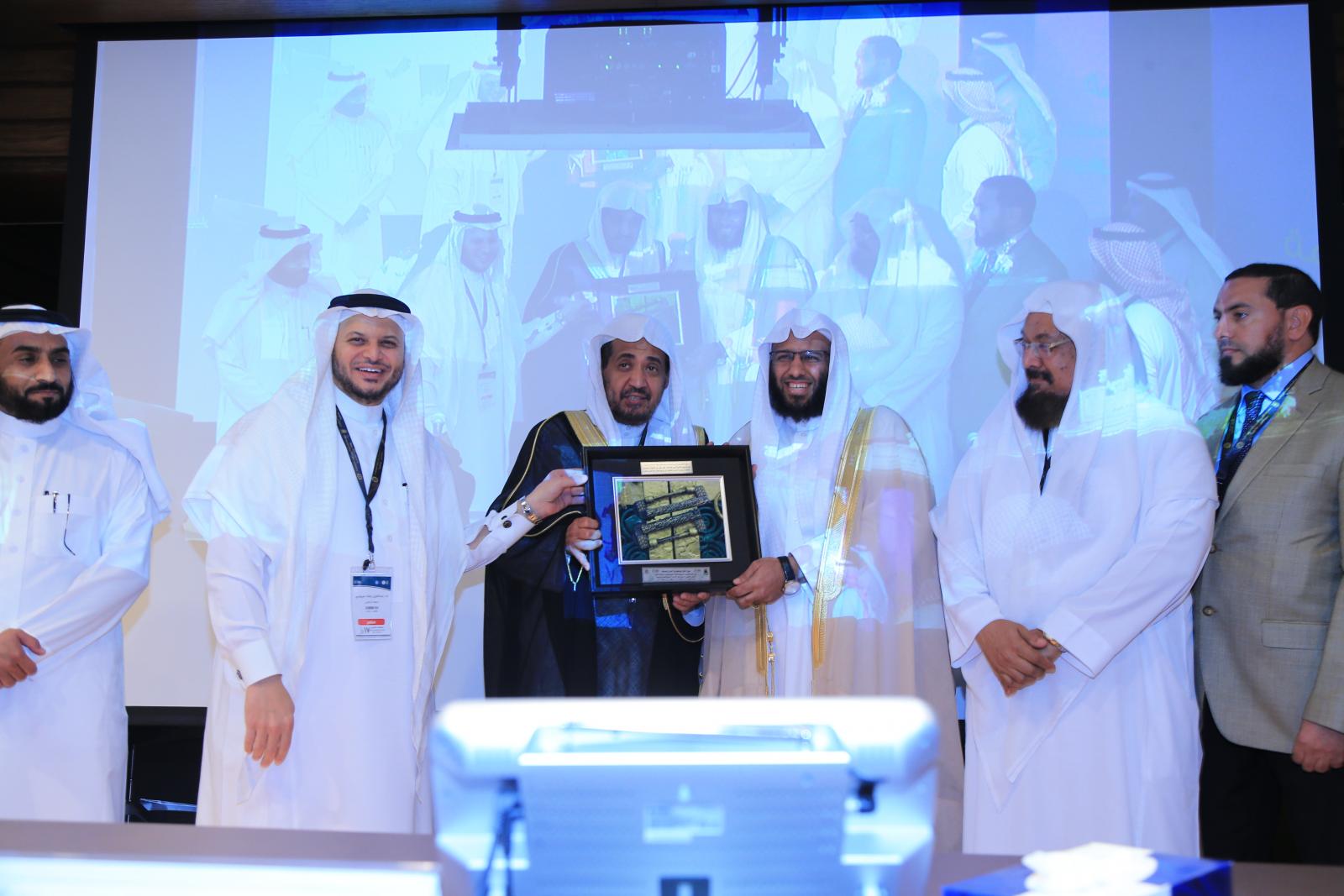
Chaired by the former president of the Islamic University in Madinah Dr. Mohammed Al-Oqla, the 6th Scientific Meeting put forward the topic on “The Jurisprudence of Hajj, Umrah and Visit” to be discussed by participants in the 17th Scientific Forum for Hajj, Umrah and Visit Research. During the meeting, Dr. Adel Rashad Ghoneim - Imam Abdulrahman University in Damam - presented a paper titled: “Jurisprudence of Congestion in the Rituals”, where he handled the issue of congestion in Hajj rituals in order to alleviate the hardships, reduce the risks and provide spiritual environment for pilgrims. Dr. Adel stressed that adopting the Jurisprudence of Facilitation – Fiqh Al-Tayseer – with its gracious legal provisions concerning some rituals, while taking into account both the questioner’s situation and the modern developments, will reduce the congestion crises happening during Hajj.
“The legal provisions related to the expansion of the Rites cover the architectural aspect of the Holy Rites' spatial expansion, especially the Holy Mosque, Min and Muzdalifah, where the constrained geographical space leads to congestion. To overcome this challenge, the government of the Custodian of the Holy Mosques has adopted giant engineering projects to develop the area and facilitate the performance of rituals, taking full compliance with Islamic Shari'ah into consideration, while weighing the juristic differences and giving priority to the preferred view.” Dr.Adel added.
He also said that Human behavior plays a role in congestion, as most crowd accidents are triggered by this aspect, making crowd management an important factor. Crowd security in congestion depends on key principles, including situation assessment, estimated crowd numbers, and reception areas.
From UQU College of Shari’a and Islamic Studies Dr. Iman bint Salem Qabous addressed the requirements of obtaining Hajj permit.in a paper entitled “Juristic Preference and its Impact of Hajj and Umrah Permit”. “Originally,” she stated, “a person repairing to the Holy Mosque should not be prevented. However, due to massive numbers of pilgrims and Umrah performers, as well as the ensuing loss of lives and properties, the Kingdom requires a permit to perform Hajj.
The researcher concluded that a permit may be required to perform Hajj, based on the Juristic Preference. Accordingly, requiring such a permit by the Saudi government complies with the objectives of Islamic Shari’ah as well as purpose behind the its legal obligation.
In the same meeting, Dr. Mohammed Abd Rabb El-Nabi Sayed – College of Education and Science in Kurma – pointed in his paper on “Organizing Advisory Opinions in Hajj: Its Causes, Means and Goals”, that the chaotic multiplicity of advisory opinions and muftis lead to controversy and differences regarding Hajj rituals, “while the key purpose of Hajj” he added, "is to stave disagreement, discord and controversy off Muslims.
In this regard, he called for taking the necessary measures to eliminate that issue of multiplicity in advisory opinions in accordance with the objectives of Shari’ah, and block all the means leading thereto so that Hajj Rites should not turn into podiums for debate over such views; noting that some providers of these opinions are not eligible for giving them.
In addition, Dr. Howida Al Harbi – UQU College of Shari'ah and Islamic Studies – elaborated in her paper entitled “The Provisions Derived from the Insane Behavior in the Holy Mosque, according to the Islamic Shari’ah” on how to deal with the mentally and psychologically disordered individuals who might act aggressively towards fellow pilgrims, money and property inside the Holy Mosque, noting the importance to pinpoint this phenomenon and have its resolved.
She wondered, “Today, many mental and psychological disorders have risen, whereby a lot of people commit criminal acts against themselves, others, property or money. Hence, is a mental or psychological patient held responsible for his actions or not? Is such responsibility full, partial or precluded? As a result, do such acts entail a punishment, or the penalty is waived?” Dr. Howida explained such questions in eight subsections covering: the definition of legal competence, its categories, impediments, definition of mental and psychological patients, provisions on their conduct and their criminal responsibility in Islamic Shari’ah.
Also, in her research on “Islam's Approach to Raise Awareness of the Cultural Message of Hajj”, Dr. Maha Jorais – Shari’ah College at Imam Muhammad ibn Saud Islamic University – stated that Hajj embodies a cultural and civilization message to the world. It is the unique Islamic rite that brings together all Muslims of all ethnicities and nationalities in the same time and place, to perform the same rituals with no differences whatsoever in terms of physical bearings and number, noting that this message combines the shared objective with the common image, to communicate a deep meaningful faith and value message.
“Islam has adopted a unique approach to impart this faith and value message to people through utterances, deeds and physical bearings, which is the why the Muslim Nation is distinguished from the rest of nations. In an era of open media, we need to leverage this ritual so that Hajj should be more expressive of Islam's merits to the world in general, and non-Muslims in particular; thus requiring more attention to enhance this pillar on the media to convey its universal message which reflects Islam correctly.” added Dr. Maha.